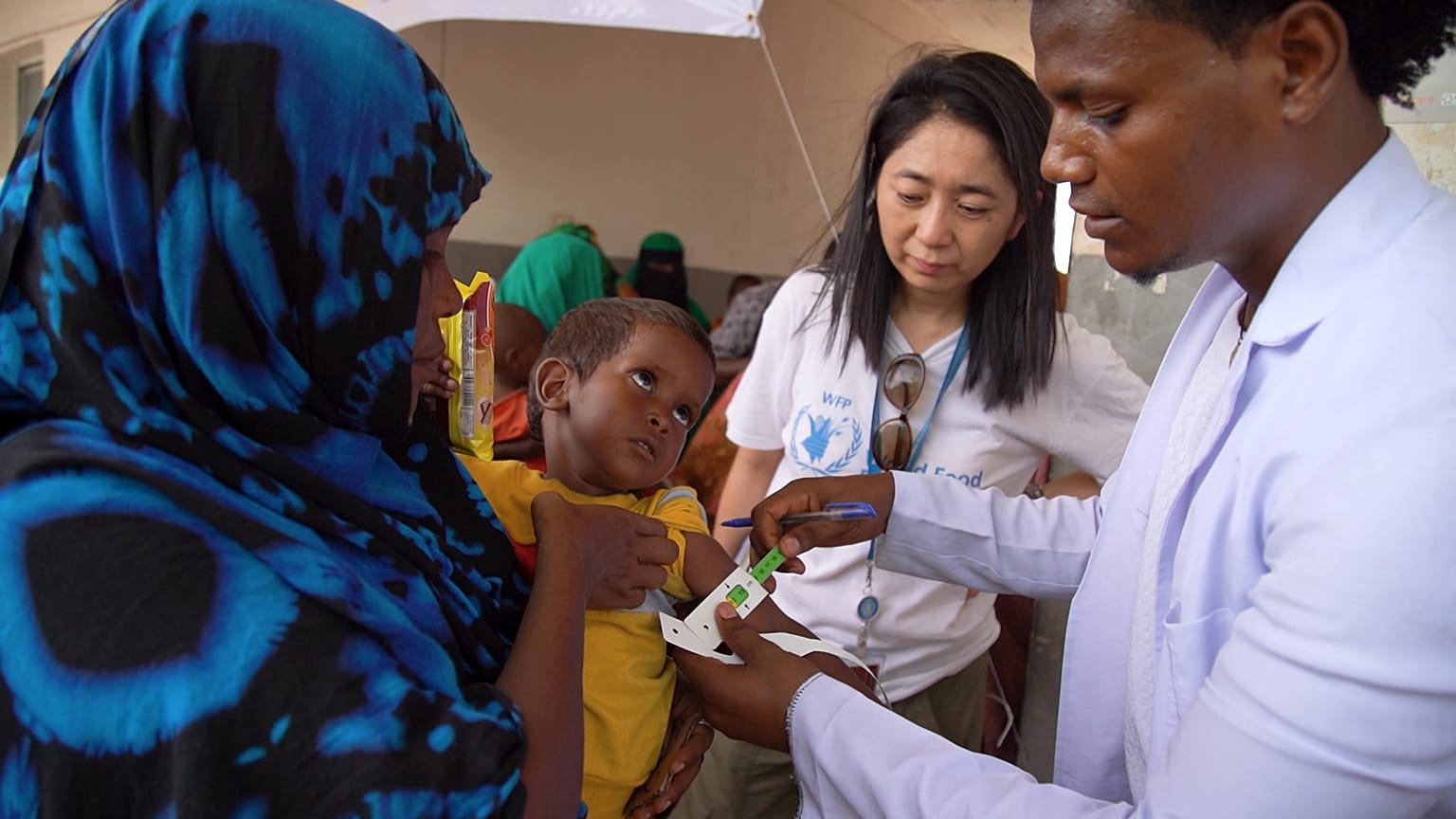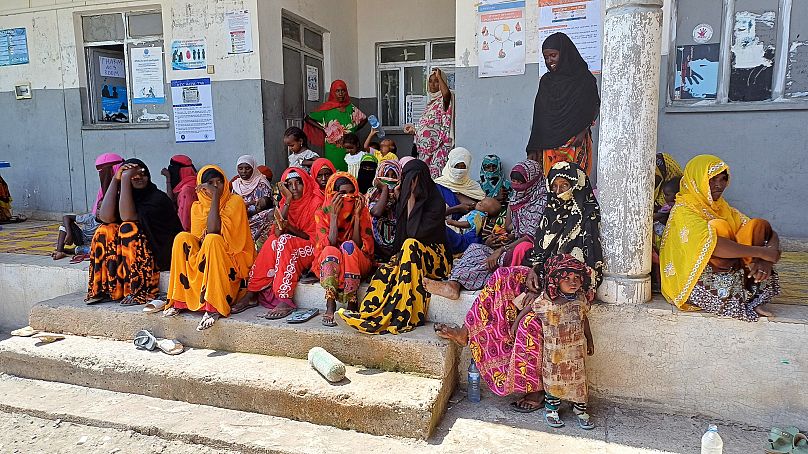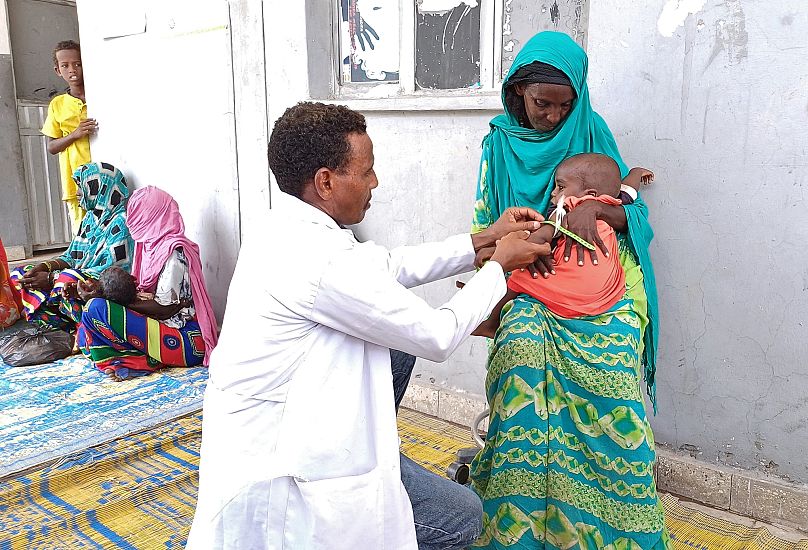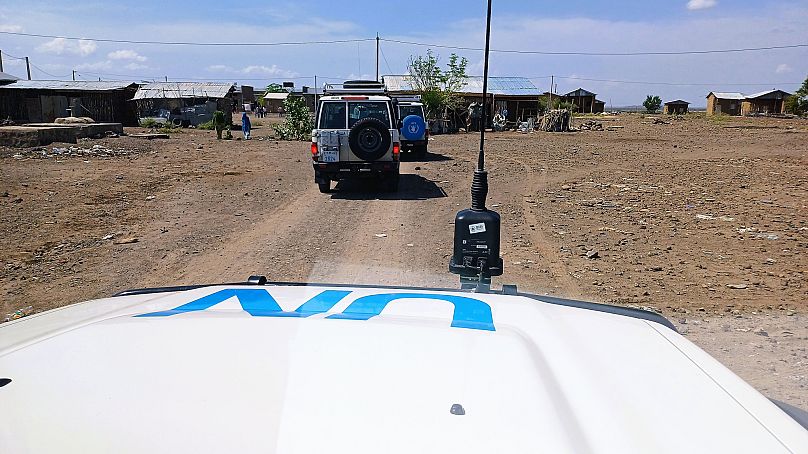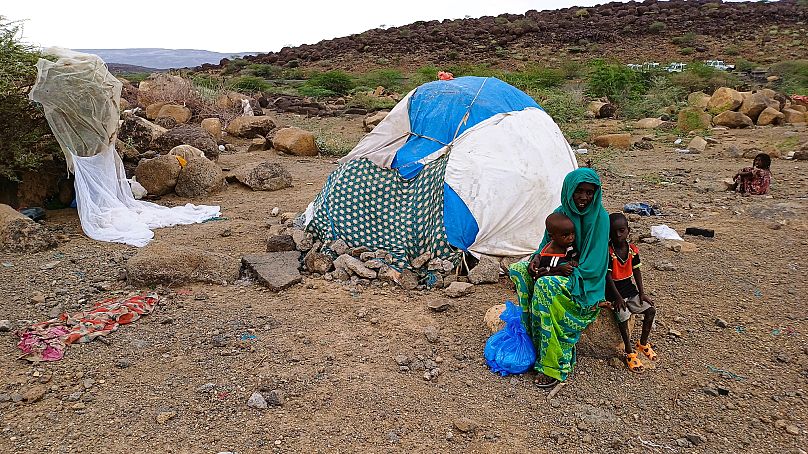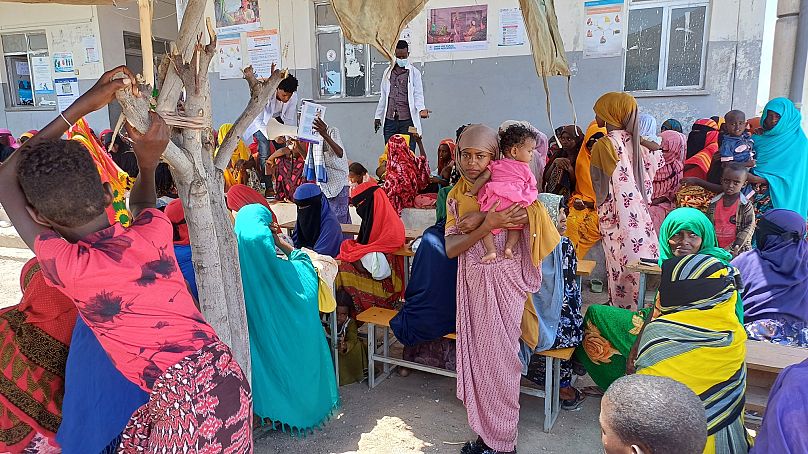What's the global community doing to ease the impact of today's food crisis? With our world hungrier than ever, we're in Ethiopia to see how lifesaving, nutritional assistance from Japan is helping some of the most vulnerable.
Climate extremes, conflict and economic shocks are creating a "deadly combination" that's fuelling a food crisis of "unprecedented proportions", the United Nations says.
In response to this crisis, Japan is providing nutritional assistance to help Ethiopia's most vulnerable.
Food supplements to treat malnutrition
The UN’s World Food Programme is on a mission in the town of Mile in Ethiopia’s Afar region.
It has a major problem with malnutrition. Around half of all pregnant and breast-feeding women, and around a quarter of all children, are malnourished. These problems have been fuelled by a conflict in the north, availability of food and general access to food, but also a lack of health services.
Just outside the town, a fortnightly health clinic is packed with children and pregnant and breast-feeding women. Here, they get diet education. They’re also screened and treated for moderate acute malnutrition.
Asia Ali, who’s 35, is here with her young sons, two-year-old Omar, and Ali who’s four.
“I am seeing that both children are malnourished at different levels," says Mohammed Abubakar, Health Worker at the health centre. "For example, this child’s upper arm is under 12.5 centimetres and this indicates he is malnourished. He should therefore take a food supplement.”
But Asia says Ali is making steady progress.
"My child was malnourished," she says. "After taking medicines and the food supplement, he’s relatively better, moderately malnourished."
The treatment for children like Omar and Ali is a highly-nutritious paste, ready to eat from a sachet. For malnourished mothers, a cereal supplement, fortified with vitamins and minerals, is given.
Japan helps fund the treatments, provided by the World Food Programme. And the health of all recipients is kept under check.
"We follow through until the time that they recover," explains Ura Kaori, Head of Programme, Ethiopia at the World Food Programme. "So that they don’t get into the category of severely malnourished. This region has recorded many deaths from malnutrition, unfortunately. So, this is really lifesaving support."
Climate extremes hit semi-nomadic communities
From Mile, we’re off to meet the semi-nomadic community of Deyiluna Graro. Our journey takes us across vast, barren landscapes, scorched in the searing heat. Here, climate extremes, like drought and flooding, drive malnutrition.
For those living here, a mobile clinic is their lifeline.
“We come here to get medications and nutritional support, and also to check our malnutrition status," says Fatuma Yusuf, who's pregnant.
This clinic also receives nutrition support from Japan through the World Food Programme. To fight malnutrition, basic food items like wheat, pulses and oil are also distributed to communities in Ethiopia.
“Japan has been funding the general food assistance, both for northern Ethiopia and the Somali region, which is also a neighbouring region affected by the drought situation,” explains Kaori.
Japan to host this year's G7 presidency
Japan supports World Food Programme projects across Africa and globally. It’s hosting this year’s G7 presidency, with food security one of the top issues world leaders need to tackle.
"345 million people are suffering from acute food insecurity," says Yakiya Naoe, Director of the WFP Japan Relations Office in Tokyo. "Therefore, we count on Japan’s leadership as the G7 president, to mobilise international support, to stave off catastrophic hunger."
Back in Ethiopia, Asia, who we met earlier, is home with her sons. With drinking water, food and money in short supply, their nutrition support is now a matter of survival.
"My hope relies on the amount of food I receive, and continuity," she says.
















